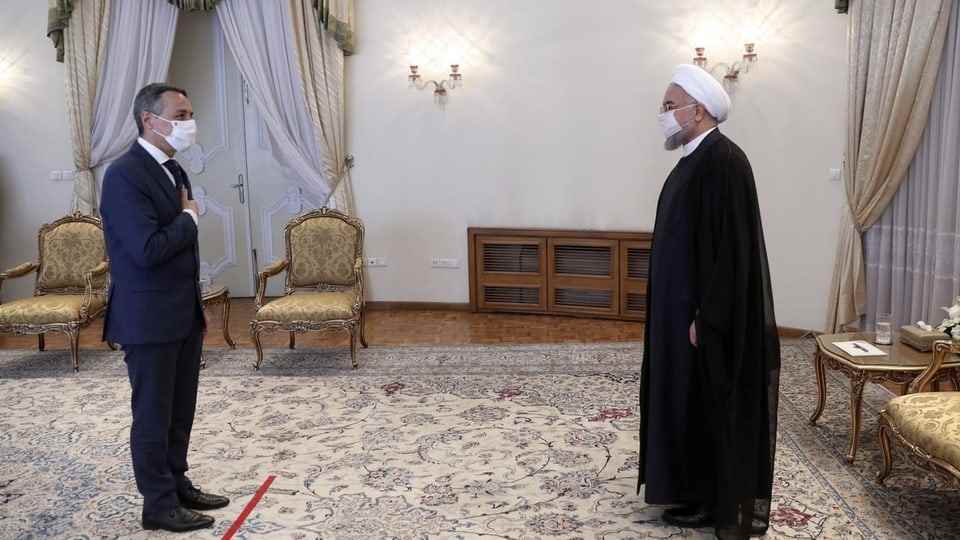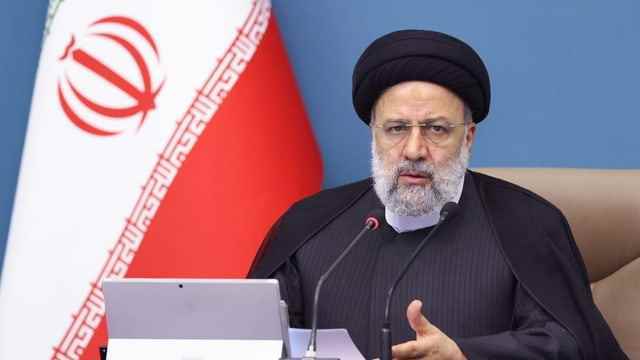The Iranian regime is brutally suppressing the protests in the country. Depending on the source, there have been between 40 and 70 deaths so far. Now a group of six national councilors from SP to FDP are demanding that Switzerland should take a clear position. One of them is Sibel Arslan from the Green Group. She demands that Switzerland also supports any EU sanctions against Tehran.
SRF News: Foreign Minister Ignazio Cassis shared his concerns about the human rights situation in Iran with Iranian President Ebrahim Raisi last week. Why isn’t that enough for you?
Sibel Arslan: I am glad that our Federal Council has expressed its concern. But the human rights violations never end, the pressure on women and the number of victims continue to rise. With its protecting power mandate, Switzerland has a special role to play. That’s why it’s important that we position ourselves clearly on the one hand – and on the other hand that we don’t become Iran’s accomplices indirectly.
The EU is considering sanctions against Iran. They demand that Switzerland should then also support this. Why should Switzerland expose itself here as a neutral country?
We Greens hold this opinion. Together with six colleagues from different parties, we submitted an interpellation with various questions. For us as Greens, it is important that sanctions are imposed. Switzerland is always committed to human rights and enjoys worldwide credibility in this respect.
If we only condemn, but do not act, then we are indirectly becoming Iran’s accomplice.
In the event of human rights violations, Switzerland must position itself more clearly as a humanitarian country. That’s why it’s important, for example, to summon the Iranian ambassador. He could be told that the Arab hijab law means that Switzerland may no longer be able to carry out its protecting power mandate as before.
Iran has been heavily sanctioned and internationally isolated for many years. The country is struggling with severe economic problems. Despite this, the regime has hardened. Isn’t the country the prime example that sanctions don’t bring the desired result?
In fact, sanctions often affect the population. Therefore, they must be used with caution. But if we do without sanctions entirely, we are also ignoring the fact that very many women and members of minorities are taking to the streets. They know they could die – and still protest. International solidarity shows them that they will not be left alone. In addition, sanctions also hurt the government. If nothing happens, you leave these brave people alone.

Legend:
With its protecting power mandate, Switzerland protects the interests of the United States in Iran and ensures that the two countries can communicate despite broken diplomatic relations. Pictured: Foreign Minister Cassis 2020 with then Iranian President Hassan Rouhani.
Keystone/AP
The head of the department for peace and human rights in the foreign department speaks of the “crown jewel” among the protecting power mandates. With your demands on the Federal Council, you question this. Why do you want to just give that up?
Indeed, this protecting power mandate can be regarded as a crown jewel. It is a symbol of good offices. But if we don’t prioritize human rights, if we just condemn but don’t act, then we’re indirectly making ourselves Iran’s accomplices. We should make credible foreign policy. The question must therefore be asked as to whether this protecting power mandate can currently still be justified.
Nina Gygax conducted the interview.

